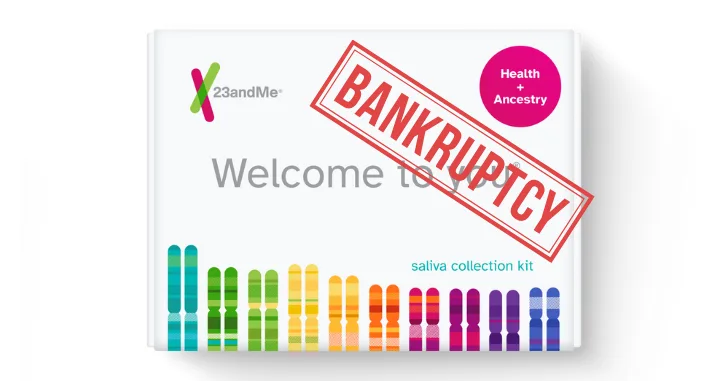The recent Chapter 11 bankruptcy filing by 23andMe has sent shockwaves through the tech and health industries—not just because of the company’s fall from grace, but because of the alarming implications for genetic data privacy.
Once a pioneer in direct-to-consumer DNA testing and valued at over $6 billion, 23andMe is now under financial duress and public scrutiny. The move has sparked fears that the highly sensitive genetic data of millions of users could end up in the hands of third parties, creditors, or buyers.
A Company in Crisis
The privacy panic is partly fueled by the 2023 breach that exposed the data of over 6.9 million users. Hackers accessed personal details and DNA relatives information, which allowed them to reconstruct partial family trees—sometimes including individuals who never consented to genetic testing at all.
These events damaged public trust and triggered lawsuits, congressional investigations, and a notable drop in users. Now, with the company entering bankruptcy, the future of its vast data trove is uncertain.
Why This Is So Dangerous
Genetic Data Is Permanent
Unlike a password or credit card number, you can’t change your DNA. Once it’s out there, it’s out there forever. This raises long-term concerns about the misuse of genetic information for purposes like:
- Insurance discrimination
- Employment screening
- Targeted scams
- Government surveillance
Your DNA May Be Sold
In bankruptcy proceedings, assets can be liquidated—and that may include genetic databases. Even anonymized data can potentially be re-identified, especially when combined with other information.
Legal Protections Are Weak
In the U.S., federal law offers limited protection. The Genetic Information Nondiscrimination Act (GINA) only prohibits misuse of genetic data by employers and health insurers. It doesn’t cover life insurance, disability, or long-term care providers. Nor does it regulate what companies can do with your data.
What Experts Are Saying
Privacy advocates, ethicists, and tech leaders are warning that this could set a dangerous precedent. Selling off genetic data, even in anonymized form, is an ethical minefield.
“This isn’t like selling email addresses or shopping habits,” said one privacy expert. “We’re talking about someone’s biological identity, potentially linked to their entire family line.”
What You Can Do Now
If you’re a 23andMe user (or were), here are steps you can take:
- Change all associated passwords and enable 2FA (Two-Factor Authentication).
- Request data deletion via 23andMe’s website.
- Monitor for data breach notifications and consider enrolling in identity theft protection.
- Stay tuned for legal updates or possible class-action settlement notices.
The Bottom Line
23andMe’s bankruptcy has reignited the conversation around genetic privacy. In a world where data is currency, your DNA may be one of the most valuable—and vulnerable—assets of all.





